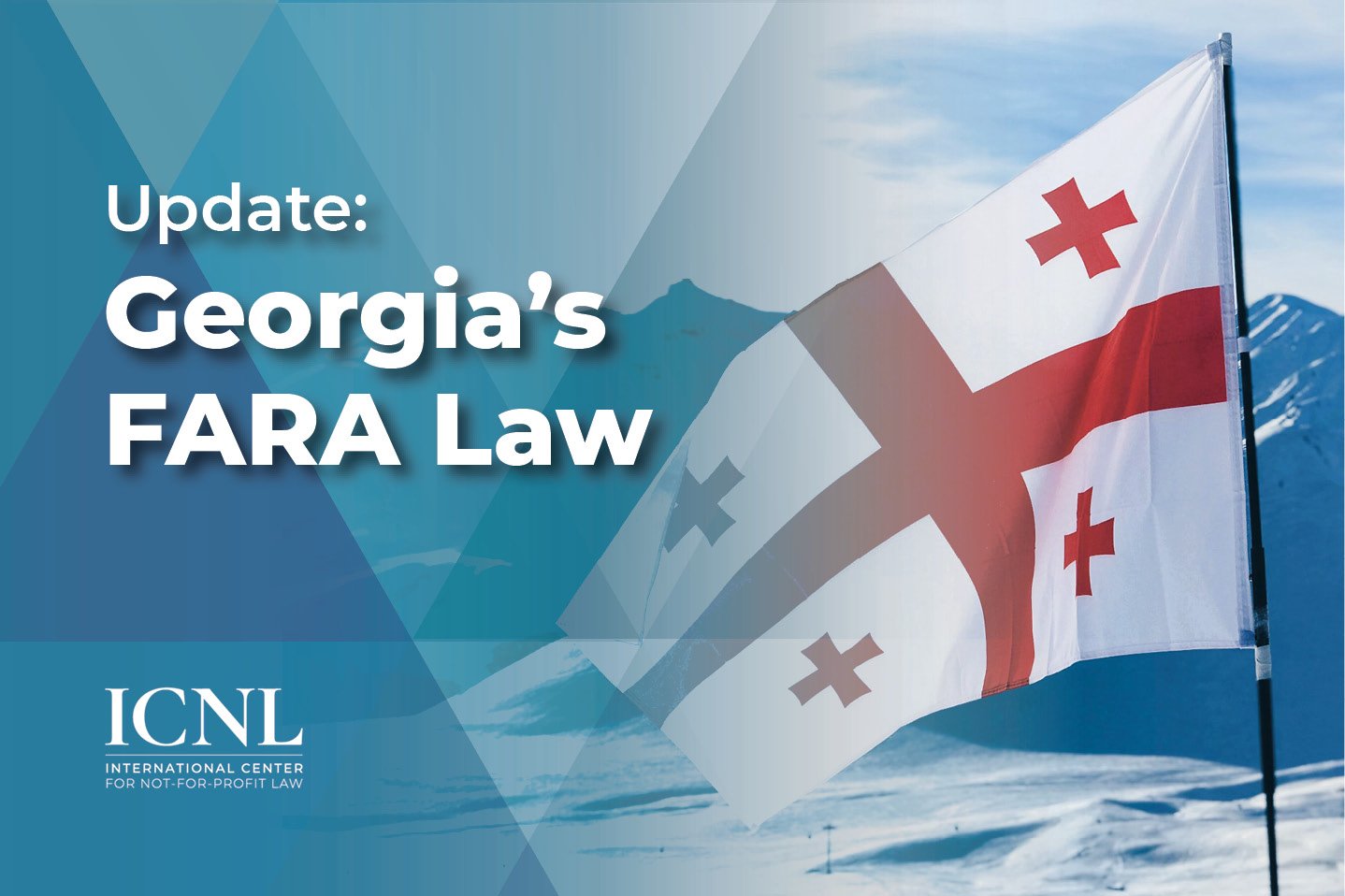Update on Enactment of the Georgian Foreign Agents Registration Act
PUBLISHED: JUNE 2025
On May 31, Georgia’s new Foreign Agents Registration Act (hereinafter – the Georgian FARA) entered into force. In April, ICNL published a brief on the adopted law, disputing inaccurate and misleading claims that the Georgian FARA is only a “translation” of the US FARA, while highlighting the broad and restrictive scope of the law, its burdensome compliance requirements, and the severe criminal penalties introduced for violations. Amid the Georgian government’s ongoing crackdown on civil society and its efforts to cut off access to funding, many Georgian NGOs rightfully fear that the Georgian FARA will be weaponized against Georgian civil society to silence independent voices.
According to the law, there is a 10-day “grace period” for voluntary registration in the new “foreign agent” registry, which is maintained by the Anti-Corruption Bureau (ACB). Once this 10-day period concludes, the ACB may start enforcing the law through inspections of any entities suspected to be “agents of a foreign principal.” If entity refuses to fully comply with all requests made during an inspection, the ACB may initiate asset freezes, request suspension of the entity’s activities through the courts, or initiate a criminal investigation. Once designated as a “foreign agent,” entities are obligated to apply to the registry in 10 days or face legal consequences. While the ACB’s decision can be appealed in court, it can still take serious interim measures—including asset freezes, referrals to investigative authorities, and initiating forced registration through the courts.
ICNL is closely monitoring the situation with enforcement of the Georgian FARA. We welcome the EU’s joint statement on May 31, urging the Georgian government to “heed their citizens’ clear demands for democracy” and to “take credible steps to reverse democratic backsliding.” An important first step would be to amend this law and ensure its enforcement is consistent with Georgia’s international and European legal obligations.

Sign up for our newsletters
Sign up